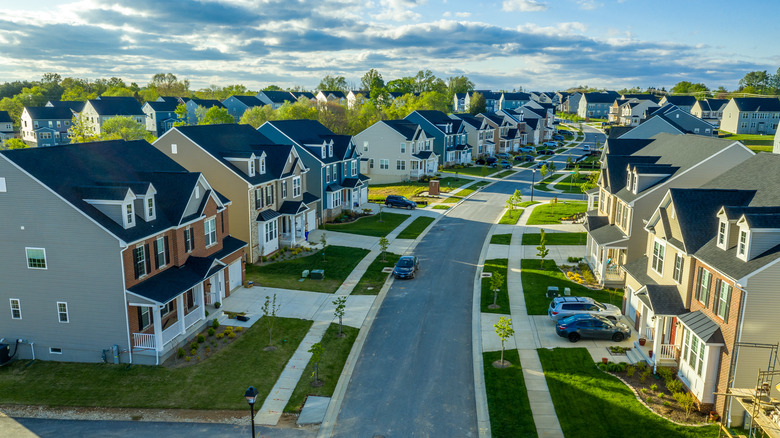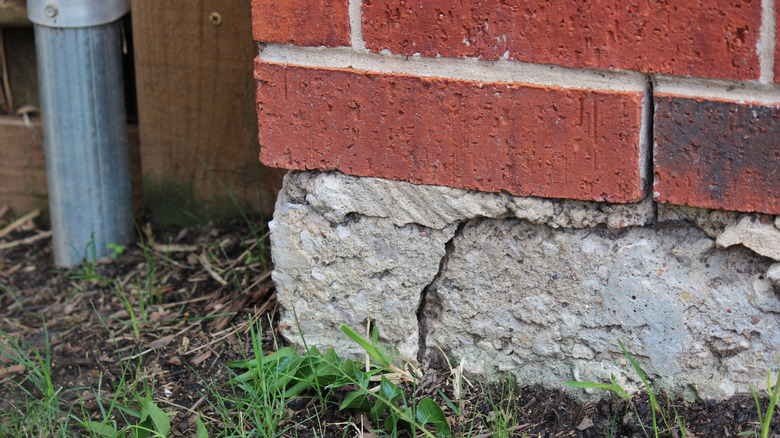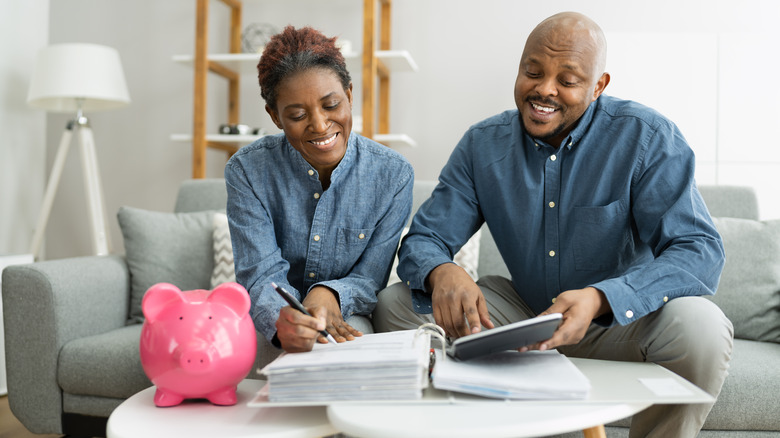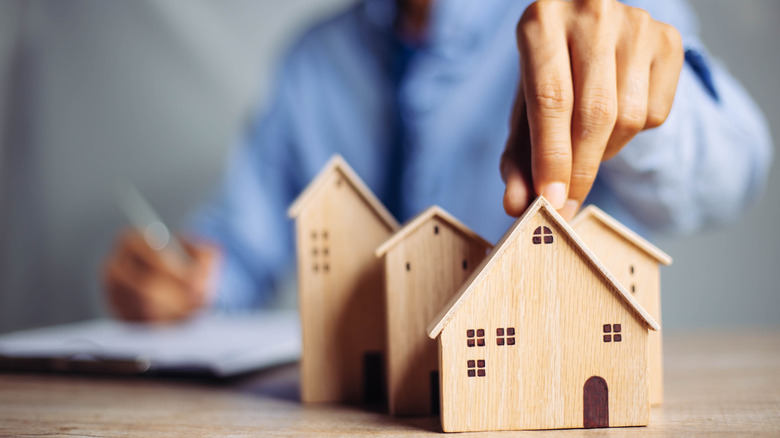Renovation Island Shares 5 Things New Homebuyers Should Think About
Buying your first home can come with a rollercoaster of emotions. Of course, purchasing a house comes with lots of excitement and anticipation. At the same time, you may feel like you're drowning in decision-making, and the stress of potentially choosing the wrong home may feel like a heavy burden. Trying to understand real estate language could be overwhelming, and you might be anxious about making some major home-buying mistakes.
To ease your anxious thoughts, Bryan and Sarah Baeumler, hosts of the HGTV television show "Renovation Island," narrowed down five helpful tips for first-time homebuyers, per the Royal Bank of Canada. These tips include choosing the location, checking the foundation, creating a realistic budget, considering extra costs, and determining what size and layout are best for you and your family. Once you've understood these five important factors, your stress will dissipate, and the home buying process will become much easier to manage.
1. Think about the location
The first thing to contemplate when buying a home is the location. This is because, as the Baeumlers point out, it is the one thing about a home that cannot be changed, per the Royal Bank of Canada. When considering the location of a particular house, think about two factors. One, does this place make sense for my specific lifestyle? And two, is there something near this site, like loud train tracks, that would make reselling the home difficult?
UpHomes also considers location to be the most important factor to consider when purchasing a new home. If you have a family with kids in school, the school systems in the area will be vital to you. Another factor to consider is the crime in a specific area, which can be determined by looking at crime rates. Some may find that transportation needs are essential, while others may think more about how close the grocery store or gym is to their house. Finally, you'll also want to consider the potential of your location. If the area around your home is up and coming, your home's value will most likely appreciate over time.
2. Check the foundation
When purchasing a home, you'll want to check that the foundation is sturdy and in good shape. To ensure your home is on a solid foundation, it's advised to get a professional's opinion. According to iBuyer, this inspection could cost anywhere from $300 to $1,000, so make sure to factor this into your overall home budget.
There are also a few ways you can check how solid your foundation is for yourself. Sure Safe says to begin by walking around the exterior of the home, paying careful attention to the walls. Investigate for any uneven walls, large cracks, or signs of water damage in the concrete. Once the exterior has been inspected, look over the interior walls. Check for leaning walls and windows that are difficult to open, two potential signs of foundation issues. Finally, look over your crawl spaces, pipes, and foundation supports for moisture, mold, or signs of rust.
3. Stick to your budget
First-time homebuyers can feel overwhelmed in a competitive market, which may cause them to spend more than they originally anticipated. But Bryan and Sarah Baeumler warn against this, saying that you shouldn't feel you need to pay over your budget for a home, per the Royal Bank of Canada. Not paying over budget is crucial because you may find unexpected issues with your house in the future.
Soon after purchasing, you may discover that your roof needs to be repaired or your appliances need to be replaced. Setting aside money to fix some of these common problems is a smart move. State Farm says to keep about 1% to 4% of your home's value in an emergency fund — but it can also be used for maintenance. Another tip is to take minor repairs seriously. If something little isn't fixed when it comes up, it may turn into a costly problem later.
4. Don't forget about carrying costs
Another consideration is the carrying costs of a home, like the price of heating, electricity, property taxes, maintenance, and insurance, among other expenses. If you don't have enough money to pay for these added costs, you could end up "house poor," per Nerd Wallet. This is when so much of your money goes to the house payments that you cannot travel, put money into savings or retirement, or go out with friends.
To avoid this, Clever Girl Finance says to consider your home as an investment. With this in mind, don't allow your desire for a specific home cause you to buy something you can't afford. Instead, carefully look at all the costs and determine what the wisest financial decision is for you. At the most, your mortgage shouldn't cost over 35% of your total income, and keeping it low will allow you to put more money into other ventures and expenditures.
5. Make sure the size and layout are right for you
When purchasing a new house, first-time buyers may be unrealistic about their desired size and layout needs. While you'll want to stay within your budget, you'll also want to make sure your home has enough space. Rocket Mortgage says that when choosing a home dimension that's right for you, consider your family's size and future plans. If you have a large family or plan on having kids soon, you'll want a home that can accommodate everyone.
Also, think about how much space is given to each room. For instance, while two homes may have duplicate square footage, one may have a larger dining room, while another may have larger bedrooms. Deciding what's most important for you and your family is key. K. Hovnanian also points out that choosing a home with enough bathrooms is essential, and the ideal ratio is at least one bathroom for every two bedrooms.





